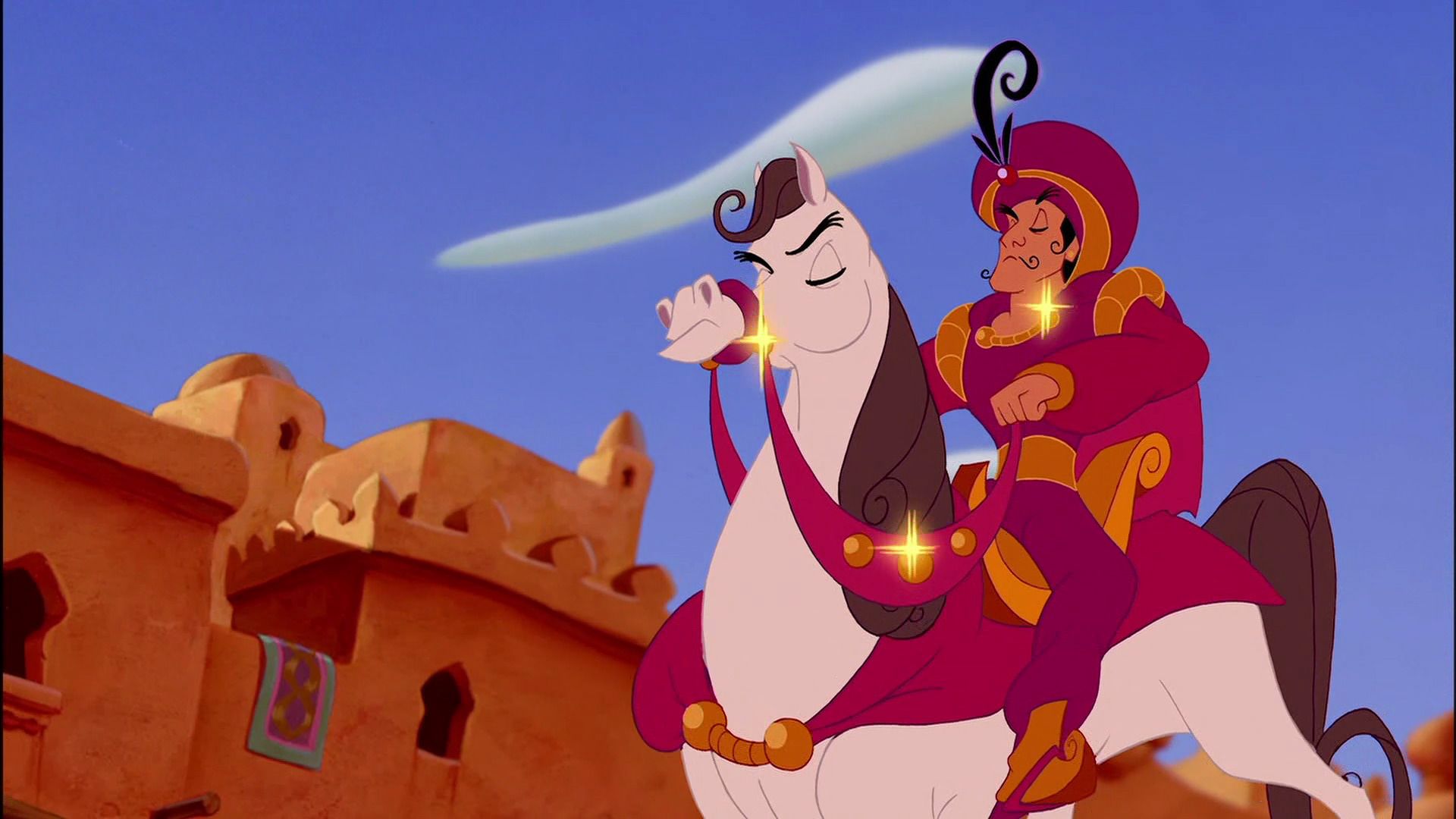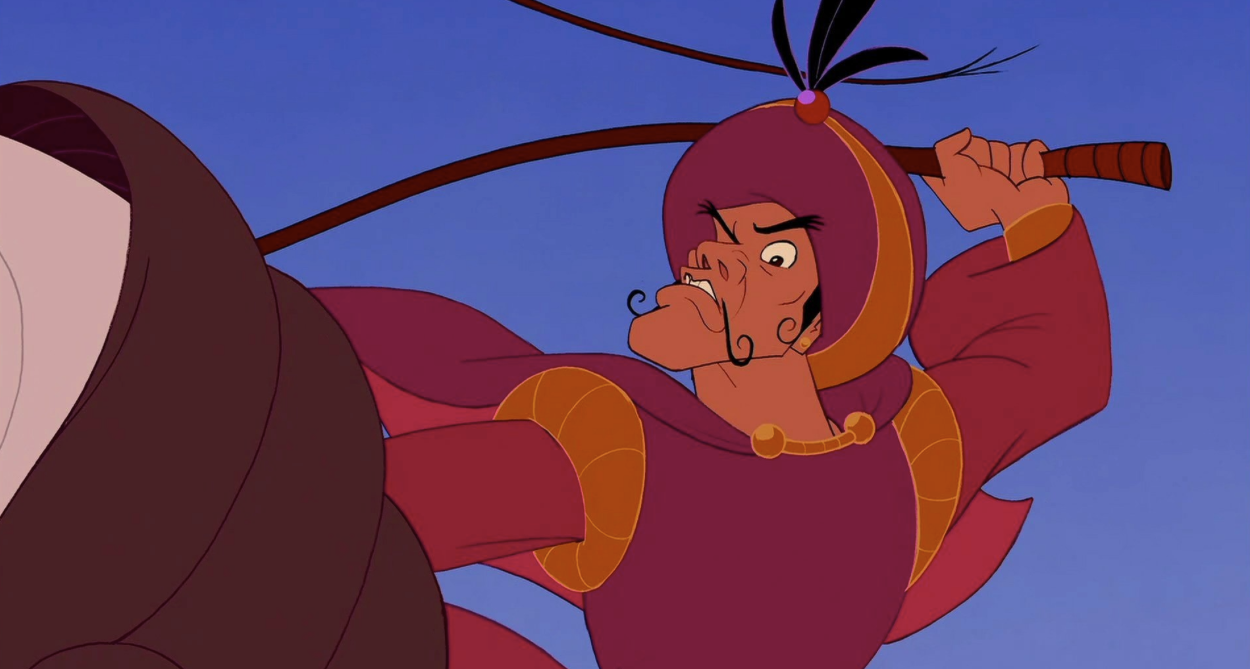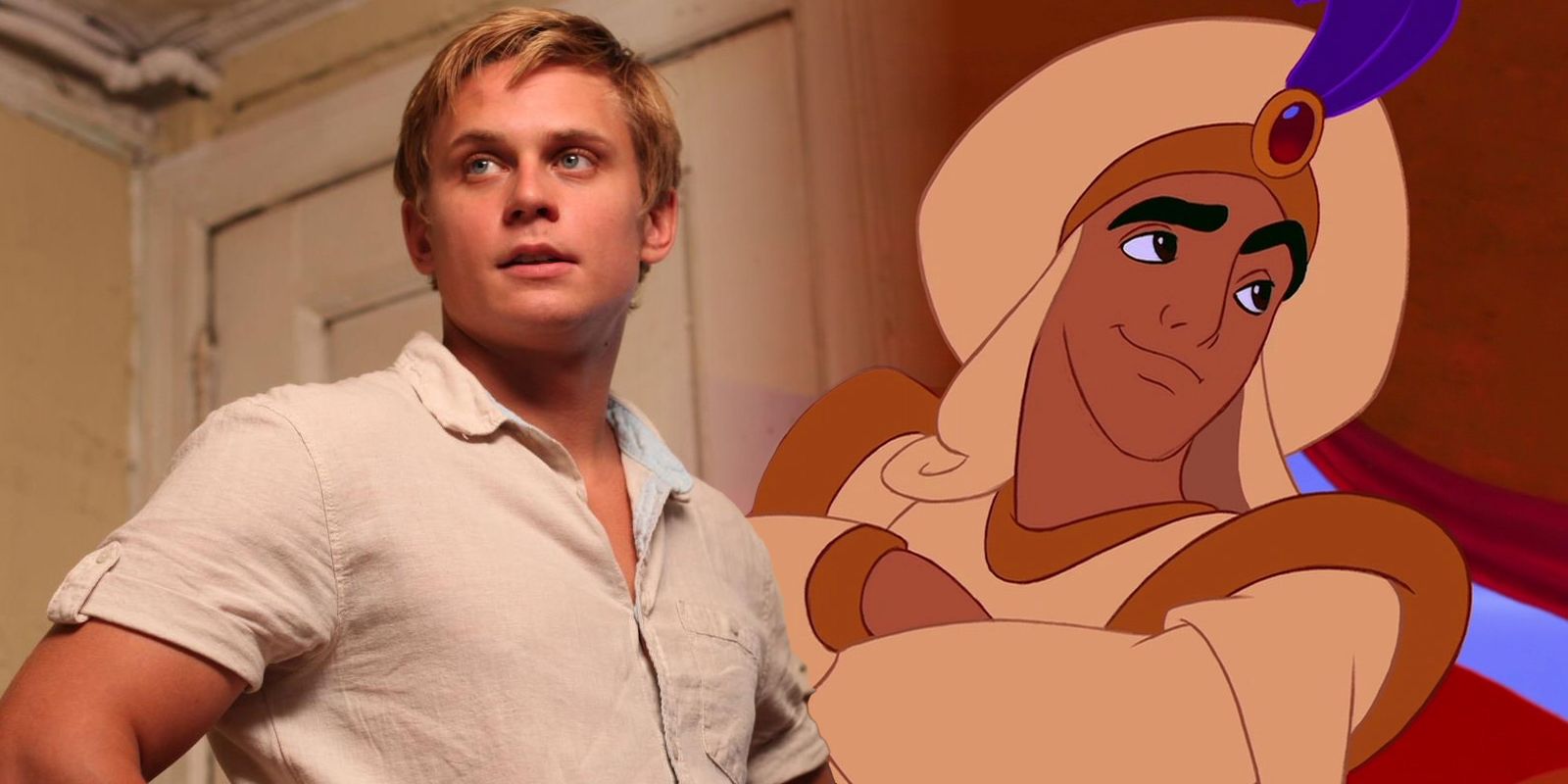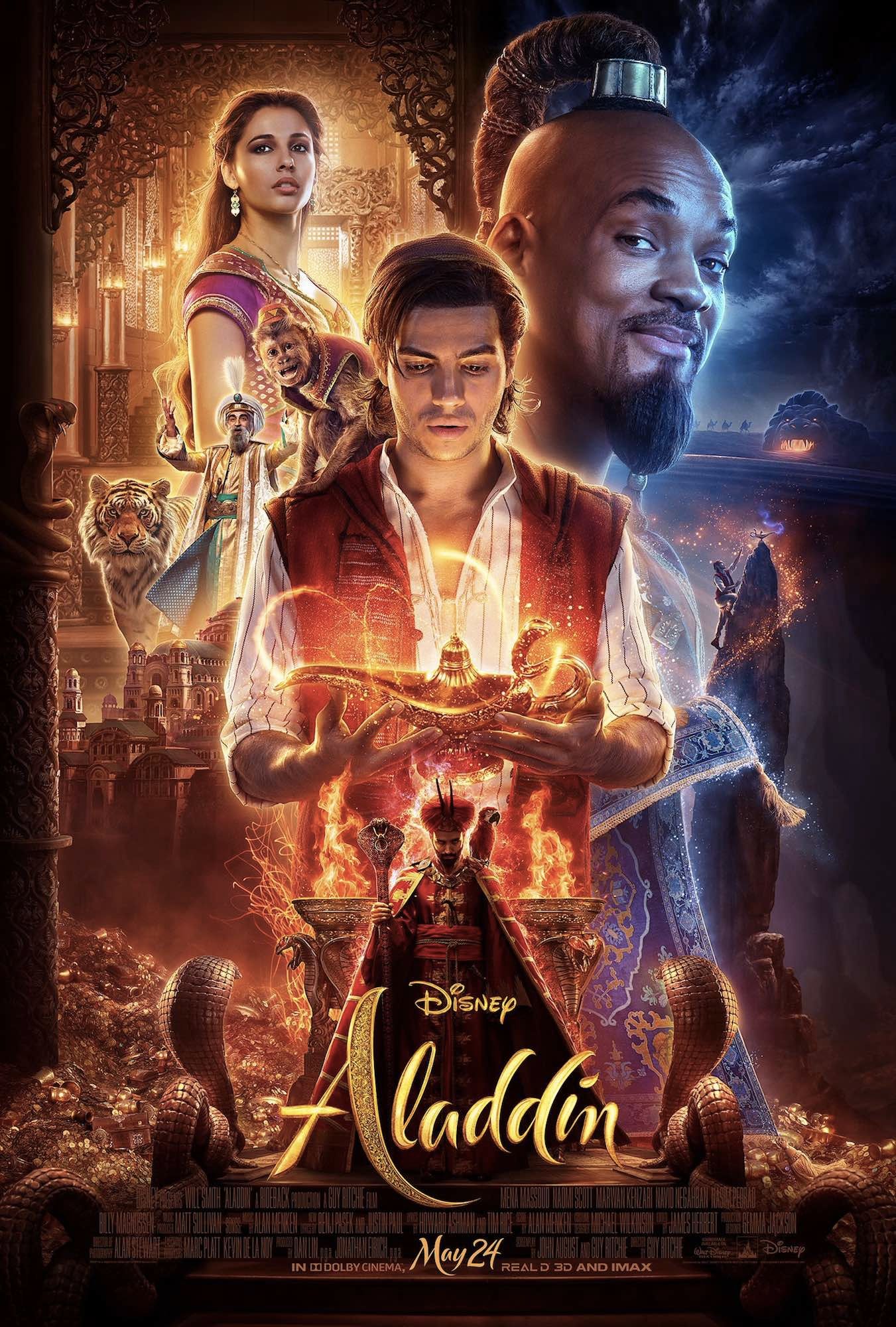The live-action Aladdin only began production last week but it's already become the most controversial Disney film in recent years. First, there was a backlash over the casting of half-British, half-Indian actress Naomi Scott in the role of Princess Jasmine and now the news that a brand new white character had been added to script has caused even more outrage. Billy Magnussen - known for his roles in Into The Woods and the upcoming, yet equally controversial, Bruce Lee movie Birth of the Dragon - is set to play a Norwegian royal called Prince Anders, "a suitor from Skanland and potential husband for Princess Jasmine."
The news of his casting was announced via The Hollywood Reporter, and the Disney press team seemed to be at pains to make clear that this was a brand new character that had never appeared in the original 1992 animation. But is that really true? Prince Anders may not have appeared in the original, but he could be a replacement for another prince hoping to win the hand of Princess Jasmine.
Prince Achmed was a snooty and pretentious Arab prince who was one of the many potential suitors the Sultan had lined up to marry his daughter. He was actually the only suitor seen on screen, other than Prince Ali (a.k.a. Aladdin), and first appeared on horseback heading into Agrabah. Showing his selfishness and cruelty he tries to attack two orphan children, who get in his way, with a whip before Aladdin jumps in to defend them. This earns the "street rat" a dressing down by the snobby royal.
"You are a worthless street rat. You were born a street rat, you'll die a street rat and only your fleas will mourn you."
Prince Achmed's withering putdown is one of the best in the film but he does gets his comeuppance, deservedly so, thanks to Jasmine's pet tiger Rajah who attacks the haughty suitor, which causes him to flounce out of the palace and wish the Sultan good luck in finding his daughter a husband. That's the last we see or hear from him in the animation and judging by IMDb, we don't see or hear from him at all in the live-action remake.
In the cast list there is no reference to Prince Achmed, or a similar Middle Eastern suitor, just the "brand new" Prince Anders character which seems to be pretty damning evidence of Hollywood whitewashing. It's one thing to shoehorn a white character into a Middle Eastern story, another to totally replace a Middle Eastern character with a white one when a promise has been made to make a movie as authentic as possible.
Producer Dan Lin made it very clear that director Guy Ritchie and Disney were not going to whitewash the movie, even suggesting that because he is Taiwanese that he couldn't allow that sort of thing to happen with the movie.
“Look at me. I mean I’m not a typical guy. Listen I’m very fortunate working in Hollywood; I am diverse. So when I came in to make the movie, I wanted to make a diverse version of the movie. Luckily for me Guy Ritchie has the same vision and Disney has the same vision, so we’re not here to make Prince of Persia. We want to make a movie that’s authentic to that world.”
Of course, there is historical evidence to support the idea of a Scandinavian in Agrabah, thanks to Ahmad ibn Fadlan, and other Arab writers who documented Muslim encounters with the Vikings between the 9th-16th centuries. They were referred to as Rus in Arabic, and known for traveling into Western Europe, Central Asia, and the Middle East, pillaging and ransacking villages, especially in Muslim-ruled lands that contained a wealth of treasures beyond anything they had come across before. But when the Rus realised they were no match for the Muslim forces, they decided trade was the best way to interact with these Islamic countries and set up trading posts, via the Volga Trade Route, so that their merchants could get their hands on the silver dirham, which at the time was the strongest currency in the world.
Little is known about Billy Magnussen's character other than being a suitor for Princess Jasmine, who may well just want her hand in marriage in order to secure a dowry (money brought by a bride to her husband on their marriage) of silver dirham to take home to Skanland. However, the likelihood of a Viking marrying an Arab princess seems more like screenwriter John August using artistic license to throw a white character into the story than an accurate representation of marriages at the time.
Prince Achmed may have been a snobby character but he was at least a more realistic suitor for Jasmine than some Norwegian, and he functioned to show how strong-minded the Princess was; someone who was not afraid to speak her mind or show her distaste at the misogyny that surrounds her. If Prince Anders is a replacement for the Arab prince, this means that the opportunity for a Middle Eastern actor to land a role in a major motion picture has been taken away. Not just a Middle Eastern actor though, for even though Disney's animation was set in a fictional Arab city, the original story from A Thousand And One Nights was actually set in China. Sino-Arab relations were established during the Tang dynasty in the 7th Century, with good trade and diplomacy between the two nations, which means August could have created a Chinese prince to be a potential suitor for Jasmine instead.
The Aladdin remake may well end up with a Prince Achmed. After all, his part is small and very easy to fill, but it doesn't bode well for Disney if he's been disappeared entirely and a white character is introduced to fill a silimar role - even if it is a "new character." Representation for people of color in Hollywood is a problem with continued cases of whitewashing that fans are just not going to let slide. Ghost in the Shell suffered because of the studio's decision to cast Scarlett Johansson as Japanese character Major but Ed Skrein was celebrated for dropping out of Hellboy after the backlash of his casting as a Japanese-American character. With Daniel Dae Kim in talks to replace him it will, no doubt, put the movie in better commercial stead when its released. As The Hollywood Reporter's Rebecca Sun points out, Skrein's decision to leave the role could be the "tipping point" for the practice of whitewashing and set a new precedent about what is expected for casting roles with ethnic backgrounds or history.
Disney has been leading the charge for diversity and representation with Queen of Katwe and Moana, and recently has enjoyed a lot of success from their live-action remakes of The Jungle Book, Cinderella and Beauty and the Beast, but this whitewashing controversy that continues to surround Aladdin may well bring their winning streak to an end.




